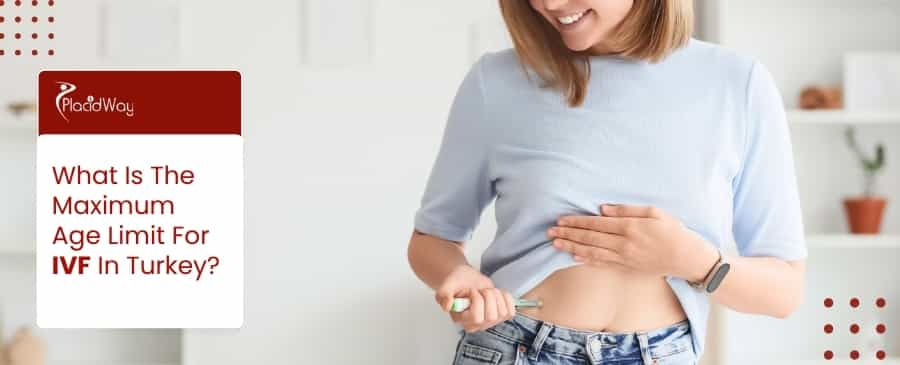Understanding IVF Turkey Age Limit and Eligibility

When considering In Vitro Fertilization (IVF), understanding the specific regulations of your chosen destination is crucial. Turkey, a leading hub for medical tourism, offers world-class fertility care but operates under a clear legal and medical framework.
A primary question for many hopeful parents, especially those over 40, is about the maximum age limit for IVF in Turkey. This guide provides a detailed explanation of Turkey's age-related policies, the medical science behind them, and what alternatives exist for those who may not meet the criteria.
What is the Official Maximum Age Limit for IVF in Turkey and Why Does it Exist?
The age limit is not an arbitrary rule but a guideline based on extensive medical data. The two primary reasons for this regulation are:
- Drastically Lower Success Rates: As a woman ages, the quantity and quality of her eggs (ovarian reserve) decline. By age 45, the chance of a successful live birth using one's own eggs is statistically very low, often in the single digits.
- Increased Health Risks: Advanced maternal age is associated with a higher risk of pregnancy complications for both the mother (e.g., gestational diabetes, preeclampsia) and the baby (e.g., chromosomal abnormalities, premature birth). The age limit serves as a protective measure.
Turkish clinics adhere strictly to these national health regulations, prioritizing patient safety and realistic treatment outcomes.
How Do IVF Success Rates in Turkey Decline With Age?
A woman's age is the single most important predictor of IVF success with her own eggs. Here is a general breakdown of live birth rates per IVF cycle that you can expect at a reputable Turkish clinic:
- Women under 35: 40% - 50%
- Women aged 35-37: 30% - 40%
- Women aged 38-40: 20% - 30%
- Women aged 41-42: 10% - 20%
- Women aged 43-44: 5% - 10%
- Women aged 45+: Less than 5%
These statistics underscore why the age limit is in place and help manage patient expectations.
What Specific Medical Assessments are Required for Women Over 40 in Turkey?
Before proceeding with IVF, a rigorous screening process is mandatory to ensure patient safety. This includes:
- Ovarian Reserve Tests: Blood tests for AMH (Anti-Müllerian Hormone) and FSH (Follicle-Stimulating Hormone), plus an Antral Follicle Count (AFC) via ultrasound, give a clear picture of the remaining egg supply.
- Uterine Health Check: An ultrasound or hysteroscopy is used to examine the uterus for any issues like fibroids or polyps that could interfere with implantation.
- General Medical Clearance: This includes checks for blood pressure, diabetes, and heart health. A cardiology clearance is often required for women over 40 to ensure their cardiovascular system can handle the strain of pregnancy.
Is Egg Donation Legal in Turkey, and What are the Alternatives for Older Women?
This is a critical point of law that all international patients must be aware of. The legal framework in Turkey prohibits the use of any third-party gametes in fertility treatments. This means that if you are unable to use your own eggs, you cannot receive IVF treatment within Turkey.
For women in this situation, the most common and effective path forward is to pursue an egg donation IVF cycle abroad. Reputable clinics in Turkey are transparent about this law and may be able to provide general advice, but they cannot facilitate the treatment.
Countries geographically close to Turkey with well-regulated and successful egg donation programs include Cyprus and Greece, which are popular choices for this next step.
For those navigating the complexities of fertility treatments and considering options abroad, PlacidWay offers a wealth of resources and connections. Explore PlacidWay today to find solutions related to medical tourism, comprehensive healthcare services, and expert guidance on your journey to parenthood, connecting you with trusted clinics and specialists worldwide.


.png)
.png)
.png)



Share this listing